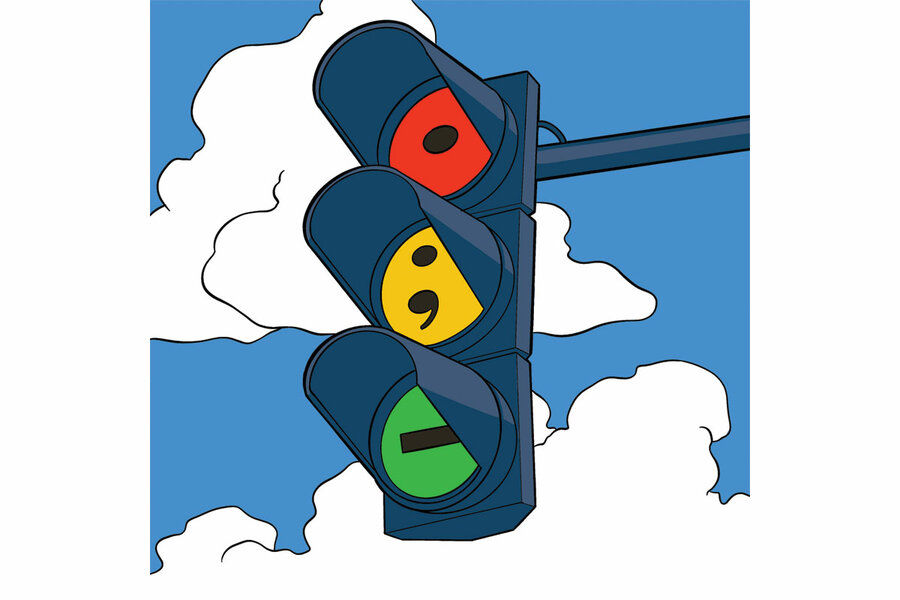In defense of punctuation, a texter’s lament
Loading...
I have always been sensitive to punctuation. It sets the pace for the prose and tells it when to gallop or stop or just pull up slightly and peer over the fence. And I have my preferences. I use fewer commas than my English teachers would have liked because sometimes I want to charge ahead.
And sometimes I use comma splices, where a semicolon is usually called for, because I want the prose to just pop a little shrug, and not actually pause with its chin in its hand.
My father, who was a fine slinger of verbiage, was a huge fan of the semicolon. He couldn’t not use them. I try to fend them off. Instead I use a long dash – it has the same effect, but it feels different.
The dash is a gentle hand on your arm. The semicolon is dusting off its tweed sleeve and adjusting its spectacles before it continues. It marks you as an old-timer. You see a bunch of semicolons coming down the pike and you feel yourself bracing for a 19th-
century novel, and who has time for that these days? Dad used to use so many semicolons that his paragraphs developed a predictable, hypnotic rhythm. He’d send me a weekly typewritten letter and by the end of it my eyelids were sliding shut.
Punctuation shouldn’t have the ability to make me sleepy, but I’m delicately wired that way. I don’t read very fast, and I follow directions. I canter and whoa when I’m told to.
Ellipses are the worst.
Some people use them as spacers for their thoughts. It makes all their thoughts seem equally important, or unimportant: “Hi … saw June the other day at the market … she says hi … doing pretty well since that incident with the monkey … don’t know if you heard about that …maybe we can get together sometime soon … OK, gotta run …”
I have nodded off by the third ellipsis. I still don’t know about the monkey. So when I first saw text messaging, I was troubled that there was no punctuation. At all. Everything just drifted off into some neutral, apathetic space. The message felt like just one “what-ever” after another. Act like you care! I thought. Give it some voice! And sometimes, if I was feeling especially peevish: You’re going to hate that tattoo someday!
Naturally, when I texted, I capitalized where I was supposed to and inserted punctuation. I had to. It was a large bother, but I didn’t want it to seem as though I didn’t care. Right away I could see why people didn’t take the trouble. It’s a lot to ask of the thumbs to capitalize and punctuate a text. Neither is necessary. It isn’t a novel. It’s a whole new way of communicating.
And as a new medium, it has made its own rules.
For one thing, you really shouldn’t use periods at all. Instead, just start a new text. If you use a period, which requires a whole extra thumb stroke, people assume you went to the trouble because you were done with the conversation, and maybe not too pleased with their end of it.
If you text someone “are you going to the party tonight” and she writes back “no,” you have your information. If she capitalizes it and slams a period on it, you know she’s definitely not going, and she might be irritated about something. And it might be you.
It could be that thing you did at the last party that you hoped everyone had forgotten about. Why else would she put such a final note on the conversation?
Leaving off the period is actually friendlier. So I get it. Text messaging has its own punctuation. It’s either none, or it’s a whole bunch of exclamation points or question marks to indicate sincerity or incredulity, neither of which is obvious in microcommunication.
But now I’m the old-timer, and everyone can tell. My contemporaries won’t be put off, and younger folk will smile indulgently and say, “It’s just Murr. She can’t help it.” Consider my text-message punctuation the wistful, charming freight from a bygone era. Consider it the lilac scent wafting from an elderly aunt’s stationery.





